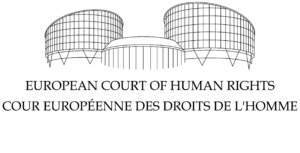On April 24, 2025, the European Court of Human Rights (ECHR) delivered a landmark judgment in the case of L. and Others v. France. Three women, minors at the time of the events, accused the French state of failing to protect them adequately or to recognize them as full victims in cases of sexual violence. The Court sided with the applicants.
Obvious Vulnerability Overlooked by Domestic Courts
The ECHR criticized the French judiciary for failing to properly assess the applicants’ vulnerability. Some of the victims had been hospitalized in child psychiatry, were taking heavy medications, and had histories of suicide attempts, social isolation, and psychological dependence on authority figures (in this case, firefighters).
Despite this, the French courts deemed their consent to sexual acts valid on the basis that they did not explicitly refuse them. For the ECHR, this reasoning is inadequate: it disregards well-documented fragility, of which the perpetrators were aware.
Inadequate Application of French Criminal Law
Since the law of August 3, 2018, Article 222-22-1 of the French Penal Code has stated that moral coercion can result from the age or vulnerability of the victim. Yet, the Court found that French judges did not properly apply this provision. They looked for signs of consent as if assessing adult behavior, instead of examining whether the victims were capable of giving informed consent.
The ECHR emphasized that the absence of physical resistance does not constitute real consent, especially when the victim is a minor suffering from psychological disorders. In this respect, France failed in its positive obligations by lacking both an effective legal framework and its proper implementation.
A European Approach Centered on Informed Consent
This judgment aligns with the standards set by the Istanbul Convention, which requires states to criminalize non-consensual sexual acts while accounting for the victim’s vulnerability. This approach protects not only minors but also those with psychological issues or who are under emotional or social influence.
According to the ECHR, courts must first determine whether a minor was capable of giving informed consent, and then whether the perpetrators were aware of the victim’s fragility. If both conditions are met, the acts must be reclassified as rape, even without explicit violence.
Gender Stereotypes Identified in French Rulings
The Court also condemned the use of sexist stereotypes in French decisions. Some judgments referenced the allegedly flirtatious behavior of the victims or suggested they bore responsibility for the events. This led to “secondary victimization,” in violation of Article 14 of the European Convention.
A Strong Signal for the Protection of Minors in Europe
This case marks a turning point in European case law. It demands urgent reflection on how courts (in France and elsewhere) assess sexual consent in vulnerable minors. It also urges judicial practices to be adapted to avoid blaming victims and to give full consideration to their personal circumstances.

